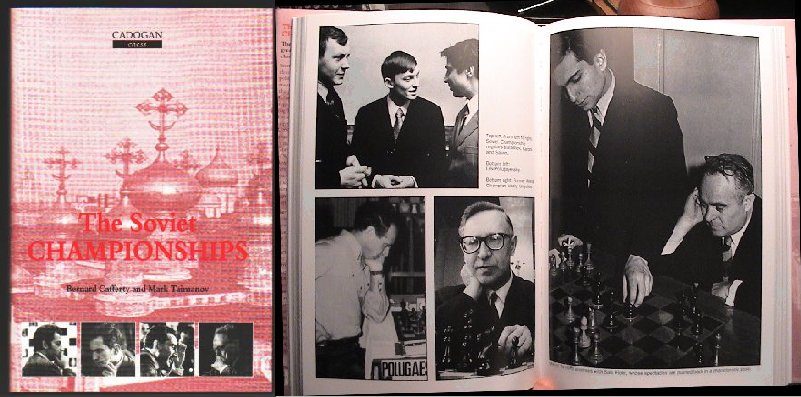Back to The Game of Chess...
"The need to combat fatalistic attitudes in Soviet society, reflected in these arguments about chess and cards, was of particular importance in the early years of the First Five-Year Plan, which demanded for its success a conscious effort on the part of the Soviet workers. It will be remembered that because of their supposedly more enlightened attitude chess-players were expected to take a leading role in the gigantic drive to industrialize the U.S.S.R." (1)
A serious question that arises in studying chess is whether it arrests the mind or liberates it. The question is quite complex, and the poignant example of Soviet chess could speak either way.
The above quotation refers to differences in how Soviet propaganda dealt with card-playing as opposed to chess games. In Communist society, card-playing was attributed to personal ruin, drunkenness and violence, and worse, cultural degradation. It was believed that playing card games numbed the player to a point where he believed fate held sway entirely over humans. Authorities blamed cards for raising superstition and illogical behavior. Their goal, on the other hand, was to construct a society crafted to serve all people - not just those fated to do well. Thus, chess - an alternative game involving pure skill - was the perfect antithesis. Chess was not considered a trivial pursuit, but rather a game that teaches one to break out of the external controls encoded in the game's rules. It was going to show the masses the skills that would be necessary for a greater Soviet society. Chess could be expected to bring in all sorts of reform - even industrialization - to Russia.
 (2)
(2)
The Soviet narrative around chess denied any assumption that it could be apolitical. In fact, when Krylenko (a minister of the Ministry of Sport) spoke on the subject, he made it clear "that an apolitical stand is also political and that the struggle against politics is above all a political struggle."(3) While cryptic, the implication is that any stance on something apolitical must be to some degree political in Soviet society. The structure of Soviet communism made no allowances for allowing freelance chess-playing. Rather it was to sanction all such activities and give it the sole justification. Krylenko thus recognizes the conflict between the symbolism of chess and it's incongruities to Soviet society, as well as the function it plays in society, but flatly puts it as a function of the political and economic system of his country.
Nevertheless, significant scholars have pointed to chess as "a realm of freedom from the pressures and strains of everyday life, a realm too where the individual can indulge in some measure of free expression."(4) Indeed, in Soviet society there did not exist as many state controls on the method as the industrial sector. In a perverse loophole, the Soviet contention that chess-playing served a greater goal seemed to legitimize a life away from the pressures of industrialization and politics. In a topic that I will return to, chess is best when creative. Until chess is solved, it is an asset that the game is abstract - at least from any "real-life" scenarios.
This idea that chess can be democratizing is traced back to none other than Benjamin Franklin. Reportedly, in a match overseas in Europe, Ben Franklin knowingly neglected the rules by moving another piece while his king was in check. When questioned about his illegal move, Franklin told his opponent to take his king and let him continue with the rest of the pieces. (5) And then Democracy won.
Well, it's not so simple, but Ben Franklin started a metanarrative about chess that breaks through the mold of its pieces (quite literally). He demonstrated that, in fact, chess is just a game and we can use it to express whatever attitudes we wish. I would argue that with Franklin begins the modern era of chess - one in which the game is an art played by intelligently bold humans. From that point forward - through Soviet chess to the present - chess became the expression of human intelligence that we hold dear today.
 Ben Franklin.JPG GUESS WHO???
Ben Franklin.JPG GUESS WHO???
- Richards, D.J. Soviet chess. p. 41.
- [link]
- Richards, D.J. Soviet chess. p. 49.
- Richards, D.J. Soviet chess. p. 44.
- Shenk, David. The immortal game. Loc. 1240 and Ben Franklin
